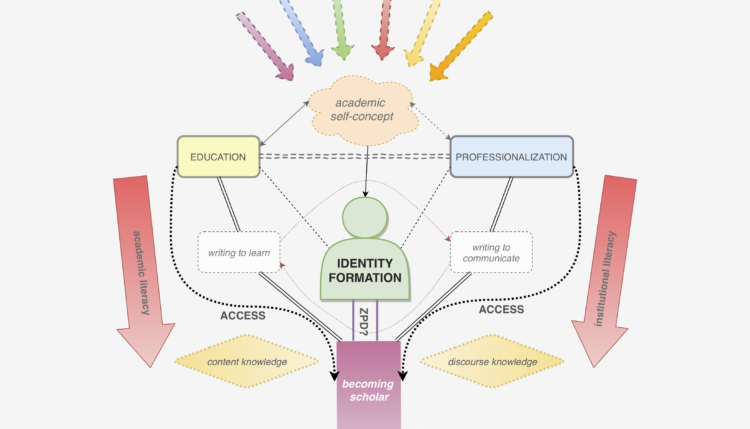
ARTICLE PROJECT: Theorizing the Self within Self-Care: Academic Identity Formation and Graduate (Writing) Support
Though they may only be scratching the surface, recent studies on the prevalence of anxiety and depression among graduate student populations strongly suggest the existence of a mental health crisis within graduate education. In this article, I suggest that graduate writing centers present a uniquely powerful opportunity to encourage sustainable habits and cultures of self-care. Specifically, I argue that by engaging with the high-stakes processes of identity formation embodied in graduate research writing, graduate writing support can enable writers to locate, articulate, and value the self within and against the unique structural pressures that so aggressively necessitate its care. Given the acuteness with which graduate students typically experience their writing (for better and/or worse) as a profound reflection of self—a link that also significantly raises the emotional stakes for writing consultants working with graduate writers—graduate writing support can bring particular clarity to the external dimensions shaping and intensifying a writer’s relationship to their writing. By tracing these institutional and disciplinary structures around and through graduate student writing, I relocate the emotionally draining (for both writer and consultant) struggles and conflicts of navigating academic identity formation not in the naive or underprepared or insufficiently resilient individual but in the social architecture determining the academic identities toward which graduate students are expected to aspire. A theory and practice of graduate (writing) support grounded in social identity/self-determination theory (Burke/Stets, Yarrison, Ryan/Deci, Ostrove/Stewart/Curtin, Stewart/Dottolo), situating writing within the rhetorical community of genre/discipline (Miller, Carter), and motivated by validation theory (Rendón) allows writing consultants to engage scholarly writing as itself a highly fraught medium for the development, performance, and articulation of identity—and, thus, an urgent and powerful site for self-care.
Burke, Peter J. and Jan E. Stets. Identity Theory. Oxford University Press, 2009.
Carter, Michael. “Ways of Knowing, Doing, and Writing in the Disciplines.” College Composition and Communication vol. 58, no. 3, 2007, pp. 385-418.
Miller, Carolyn R. “Rhetorical Community: The Basis of Genre.” Genre and the New Rhetoric, edited by Aviva Freedman and Peter Medway, Routledge, 1995, pp. 67-78.
Ostrove, Joan M., et al. “Social Class and Belonging: Implications for Graduate Students’ Career Aspirations.” The Journal of Higher Education, vol. 82, no. 6, 2011, pp. 748-774.
Rendón, Laura I. Sentipensante (Sensing/Thinking) Pedagogy: Educating for Wholeness, Social Justice, and Liberation. Stylus Publishing, 2009.
Ryan, Richard M. and Edward L. Deci. Self-Determination Theory: Basic Psychological Needs in Motivation, Development, and Wellness. The Guilford Press, 2017.
Stewart, Abigail J. and Andrea L. Dottolo. “Socialization to the academy: Coping with competing social identities.” Navigating the Future: Social Identity, Coping, and Life Tasks, edited by Geraldine Downey, et al, Russell Sage Foundation, pp. 167-187.
Yarrison, Fritz W. “Contextualizing Proximate Social Structure in Identity Theory.” New Directions in Identity Theory and Research, edited by Jan E. Stets and Richard T. Serpe, Oxford University Press, 2016, pp. 343-365.